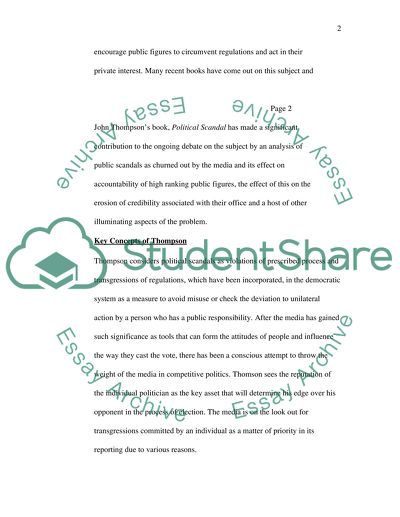Cite this document
(Central Concerns in John Thompson's Political Scandal Book Report/Review Example | Topics and Well Written Essays - 1500 words, n.d.)
Central Concerns in John Thompson's Political Scandal Book Report/Review Example | Topics and Well Written Essays - 1500 words. https://studentshare.org/politics/1505980-central-concerns-in-john-thompsons-political-scandal
Central Concerns in John Thompson's Political Scandal Book Report/Review Example | Topics and Well Written Essays - 1500 words. https://studentshare.org/politics/1505980-central-concerns-in-john-thompsons-political-scandal
(Central Concerns in John Thompson'S Political Scandal Book Report/Review Example | Topics and Well Written Essays - 1500 Words)
Central Concerns in John Thompson'S Political Scandal Book Report/Review Example | Topics and Well Written Essays - 1500 Words. https://studentshare.org/politics/1505980-central-concerns-in-john-thompsons-political-scandal.
Central Concerns in John Thompson'S Political Scandal Book Report/Review Example | Topics and Well Written Essays - 1500 Words. https://studentshare.org/politics/1505980-central-concerns-in-john-thompsons-political-scandal.
“Central Concerns in John Thompson'S Political Scandal Book Report/Review Example | Topics and Well Written Essays - 1500 Words”. https://studentshare.org/politics/1505980-central-concerns-in-john-thompsons-political-scandal.


